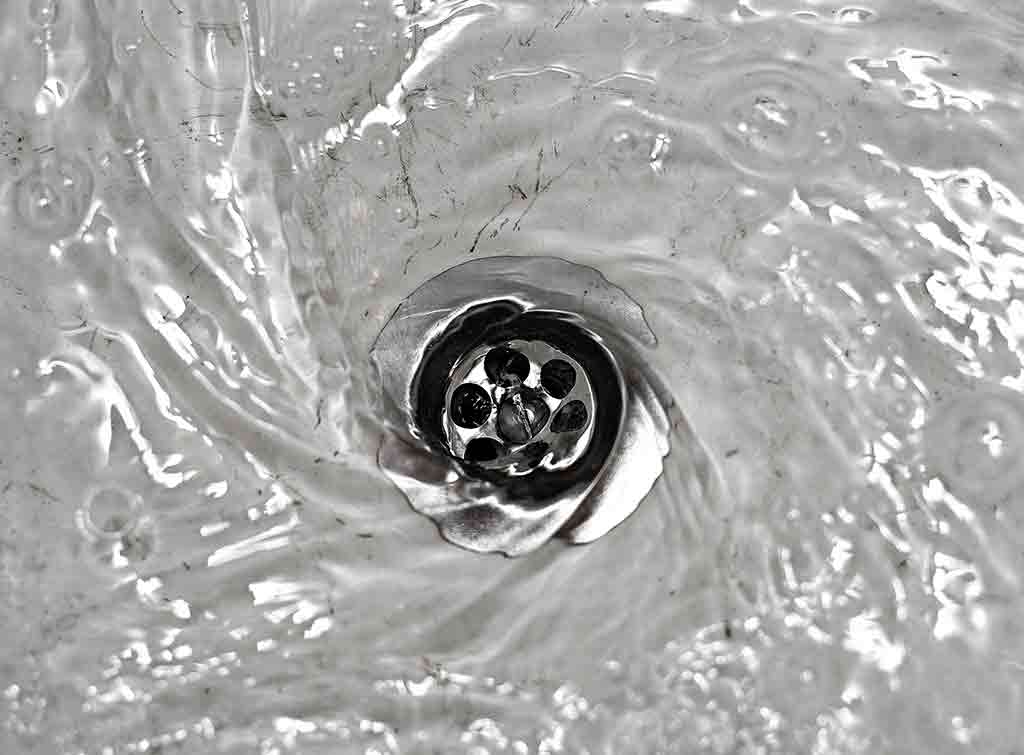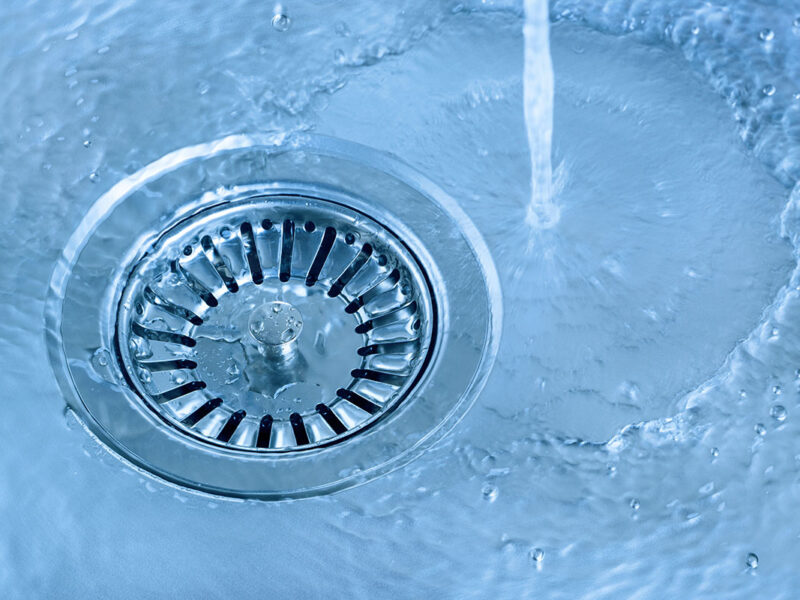What are your thoughts about 7 Ways To Fix A Slow-Draining Sink Before You Call A Plumber?

Intro
We've all existed: You're cleaning your teeth or cleaning your hands, and you observe the water merging in the sink. Instead of quickly swirling down the tubes, it sticks around, turning your once-refreshing morning routine into a miniature swamp scene. A slow-draining sink isn't just irritating; it's frequently an indicator of bigger pipes problems hiding under the surface area. Fortunately is that many slow-draining sinks can be taken care of with a little expertise, a couple of basic tools, and some patience. Prepared to tackle this job head-on? Allow's roll up our sleeves and dive right in.
Recognizing the Sources Of a Slow-Draining Sink
Prior to you start poking around in your pipelines, it assists to recognize what may be creating the slowdown. Comprehending the source makes it simpler to pick the ideal solution.
Typical Wrongdoers Behind Slow Water Drainage
So, what's clogging things up? Commonly, it's a combination of daily debris-- think hair, soap residue, toothpaste residue, and leftover food particles. Gradually, these little bits collect and hold on to the pipe wall surfaces, progressively tightening the flow and making it harder for water to travel through. Sometimes, natural resource from tough water can likewise include in the substance, developing the best storm for stubborn obstructions.
When is it Time to Do Something About It?
If you observe the water draining pipes slower than typical, it's a great concept to intervene quicker rather than later on. Waiting too long can lead to complete clogs, unpleasant smells, or even pipe damage. If the water takes more than a few secs to clear out after turning off the tap, consider it a warning and get ready to place on your do it yourself hat.
Devices and Products You'll Need
The right tools make all the difference. The good news is, you will not need a completely equipped plumber's van to do the job.
Important Tools for DIY Services
A bettor is your best beginning factor. A little, sink-sized plunger creates suction that can displace small obstructions. For more persistent obstructions, a drain serpent (sometimes called a plumbing's auger) functions wonders. A set of handwear covers, a flashlight, and maybe a pair of protective goggles are additionally convenient.
Recommended Cleansing Solutions
Light dish soap and hot water can aid break down oily build-up. A blend of cooking soda and vinegar is a reliable natural remedy, and chemical cleaners provide an even more green technique. Maintain chemical drainpipe cleansers as a last hope, as they can be severe on your pipes.
Safety First: Preventative Measures and Prep work
Before you launch into unclogging setting, consider safety and security. You're dealing with potentially dirty water and debris, so slip on a pair of handwear covers. If you're using chemical cleansers, ensure the space is well-ventilated and follow the guidelines on the label.
Protective Gear and Work Space Configuration
Put down some old towels or rags around the sink location to capture splashes. Eliminate any type of products that could enter your method, like soap dispensers or toothbrush owners. Ensure you have excellent lighting-- grab a flashlight if needed.
Step-by-Step Overview to Repairing a Slow-Draining Sink
Currently, allow's enter into the nitty-gritty. This step-by-step procedure will guide you with straightforward methods to recover your sink's drain.
Step 1: Eliminate and Clean the Stopper
Usually, the stopper (that tiny plug you push down to obstruct water) is the first culprit. Remove it meticulously and clean off any kind of hair or crud caught around its base. Rinse it completely before placing it back in position.
Step 2: Use a Bettor to Remove Debris
Got that bettor all set? Setting it over the drainpipe and give it a few company pumps. The concept is to develop suction that can loosen up any type of blockage. If you see little bits of debris drifting up, you get on the best track.
Step 3: Attempt a Drainpipe Serpent or Wire Hanger
If the bettor doesn't work, it's time to draw out the drainpipe snake. Gently feed it into the drain and spin as you go. You may feel some resistance-- that's most likely the blockage. Keep twisting and drawing until you get rid of the obstruction. If you don't have a drain snake, a corrected wire wall mount can operate in a pinch.
Step 4: Use a DIY Drainpipe Cleaner
An all-natural cleaner made from baking soft drink and vinegar can break down recurring grime. Pour half a mug of baking soda right into the drainpipe, adhered to by half a mug of vinegar. Let it fizz for around 15 mins, after that flush with hot water. This chemical reaction typically does marvels for minor blockages.
Step 5: Reconstruct and Test the Sink
Placed every little thing back together and run the faucet. Does the water now swirl down the tubes at a decent speed? If yes, give yourself a pat on the back. Otherwise, do not despair-- there are still a couple of more dress up your sleeve.
Alternative Techniques for Stubborn Clogs
Not all clogs are developed equivalent. If your sink still rejects to coordinate, think about these alternate services.
Baking Soda and Vinegar Method
We already touched on this, however it's worth noting again. This mild, green method is much safer than chemical cleaners and often quite effective.
Enzymatic Drain Cleaners
Enzyme-based cleaners utilize natural germs to digest raw material. They're an excellent selection if you're seeking to avoid extreme chemicals. Just bear in mind, they may take a bit longer to function their magic.
Chemical Drainpipe Cleansers: Advantages And Disadvantages
Chemical cleansers can blast through tough clogs fast, yet they're not without drawbacks. They can generate warm and fumes, damages pipes if utilized exceedingly, and position ecological risks. Use them moderately, and always follow the instructions carefully.
Safety Nets to Maintain Your Sink Flowing
Prevention is the very best remedy. By adopting a few basic behaviors, you can keep your sink from slowing down to begin with.
Normal Cleaning Up Behaviors
Clean down the sink basin and fixture location regularly. Eliminate hair or food particles prior to they have a possibility to wash down the drain.
Avoiding Harmful Substances Away
Think twice before unloading coffee premises, oil, or fibrous vegetable scraps down the sink. These culprits hold on to pipe walls, producing obstructions with time.
Routine Maintenance Checks
Set up a fast regular monthly assessment. Run hot water with the sink for a couple of minutes, focusing on the flow. If it seems slow, act fast prior to it ends up being a full-on clog.
When to Call an Expert Plumbing
Occasionally, no matter how hard you try, that clog simply will not budge. That's when it's time to generate the pros.
Signs That Suggest a Much More Major Issue
If your sink drains pipes slowly regardless of numerous efforts, or if you observe water backing up in other fixtures (like your shower or bathroom), you may have an extra severe pipes issue lurking much deeper in the system.
Stabilizing DIY Efforts with Professional Help
While DIY can conserve you money and supply a feeling of achievement, there's no pity in calling a professional. An expert plumbing technician can examine your entire pipes configuration, guaranteeing there's no underlying damages or long-term problem that can cost you more later on.
Comparing Costs and Long-Term Solutions
Prior to making a decision, think about the big picture. A cheap, quick fix could resolve the trouble momentarily, yet investing in a much more long-term option can save you money and tension in the future.
Evaluating the Costs of Do It Yourself vs. Expert Fixes
DIY fixes usually set you back little bit more than the price of a bettor or a bottle of cooking soft drink. Specialist services, on the other hand, come with a cost however may prevent repetitive concerns and expensive repair work later on.
Purchasing Quality Fixtures and Upgrades
If your sink's design adds to regular obstructions, it might be worth updating to higher-quality fixtures or modifying the pipes layout. Consider this a financial investment in your home's performance and comfort.
Final thought
A slow-draining sink can seem like a minor irritability, yet it's often a sign that your plumbing needs a little tender loving care. By understanding the root causes, utilizing the right devices and strategies, and dedicating to simple preventive measures, you can maintain your sink moving easily. And when all else fails, never ever hesitate to call a professional-- your home's plumbing deserves the investment in care and upkeep.
Three Common Ways to Fix a Slow Drain
Baking Soda Method
Boil a full pot of water. Measure out cup of baking soda and pour it down the drain. Then take cup of the magical cleansing substance known as white vinegar and drop that down there too. Allow the mixture to fizz in the drain for five minutes as the vinegar and baking soda combine. Now dump in that whole pot of boiling water. This combination of cleaning substances should clear out anything that is causing your sink to drain slowly. If it doesn t...
Zip-It
If the baking soda method doesn t clear out your drain, it may be because a significant amount of hair and/or other debris has collected there and you need to remove it. Purchase a Zip-It tool at any home improvement or hardware store and insert it into your drain. It will catch any collected hair or debris that s blocking the flow of water. Pull it out. If it s got a big clump of hair, etc. on the end, you ve probably got your culprit.
Drain Cleaner
If these methods don t work, there is the standard drain cleaner that you can also buy in a hardware store or even your local grocery store. It s better if you can use a household solution, but these drain cleaners often work in a pinch. They re very simple to use. You generally just dump them in your drain and wait. If even this method is not effective, it may be time to call the plumber.
https://www.mrrooter.com/oneida/about-us/blog/2017/july/three-common-ways-to-fix-a-slow-drain/

We hope you liked our article about 7 Ways To Fix A Slow-Draining Sink Before You Call A Plumber. Thanks a ton for taking the time to browse our content. Are you aware of someone else who is in the market for ? Be sure share it. Thank-you for your time spent reading it.
More Details